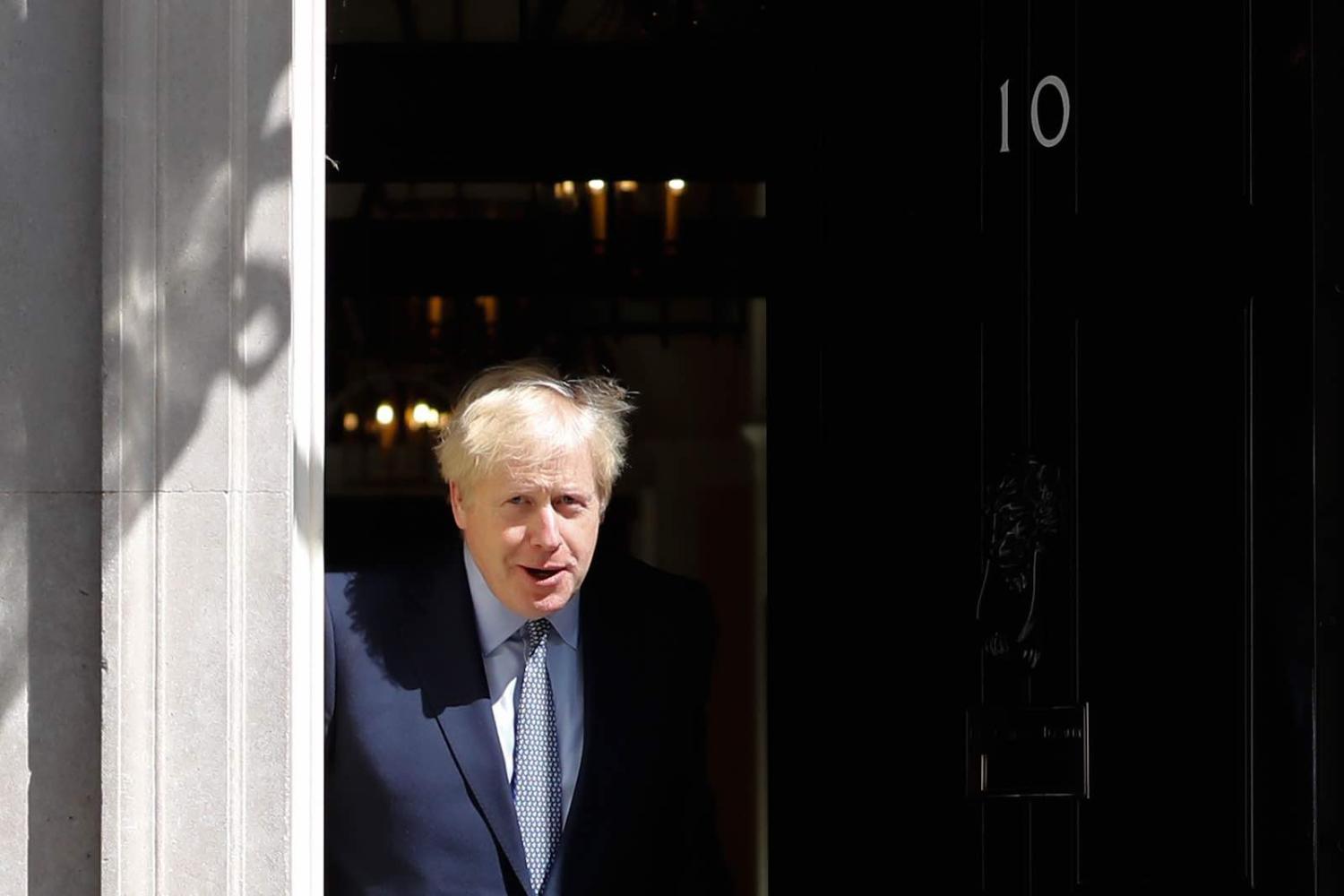On 31 October, the UK is once again due to leave the European Union. This is the third such deadline this year. It is possible that there will be a fourth, should the European Council be asked yet again to extend the UK’s membership to provide time for it to leave in an orderly rather than disorderly fashion, or possibly not leave at all.
But for now, that seems unlikely.
Prime Minister Boris Johnson has ruled out a further extension and while claiming that he wants to leave with a deal has stepped up preparations to leave without one. Because the parliamentary arithmetic is against him, with a majority of MPs opposed to “no deal”, he took the extraordinary step on Wednesday of asking the Queen to prorogue parliament to reduce the parliamentary time available to debate and vote on the issue to next week and in the second half of October. He did say that the real reason was that the government needs time to develop a really exciting legislative program for the Queen to outline when she opens Parliament on 14 October, but nobody really believes that, not least because there will soon be a general election.
The fact that we are still in this world of tight timetables is the result of the decision taken by the European Council in the early hours of 11 April, when it was last asked for an extension. The Council had an opportunity to calm the UK debate by insisting on at least a year’s extension. This would have given time for a change of prime minister, plus either a general election or a second referendum, or both, and for the country to work out what it really wanted to do with a process that had become progressively more toxic and divisive. President Macron of France, however, wanted the British out before this toxicity and division affected the rest of Europe.
In the end Macron compromised on six months, which was the worst of both worlds. No time to calm down nor to chart a new course: politics would still be following the logic of deadlines and become ever more febrile.
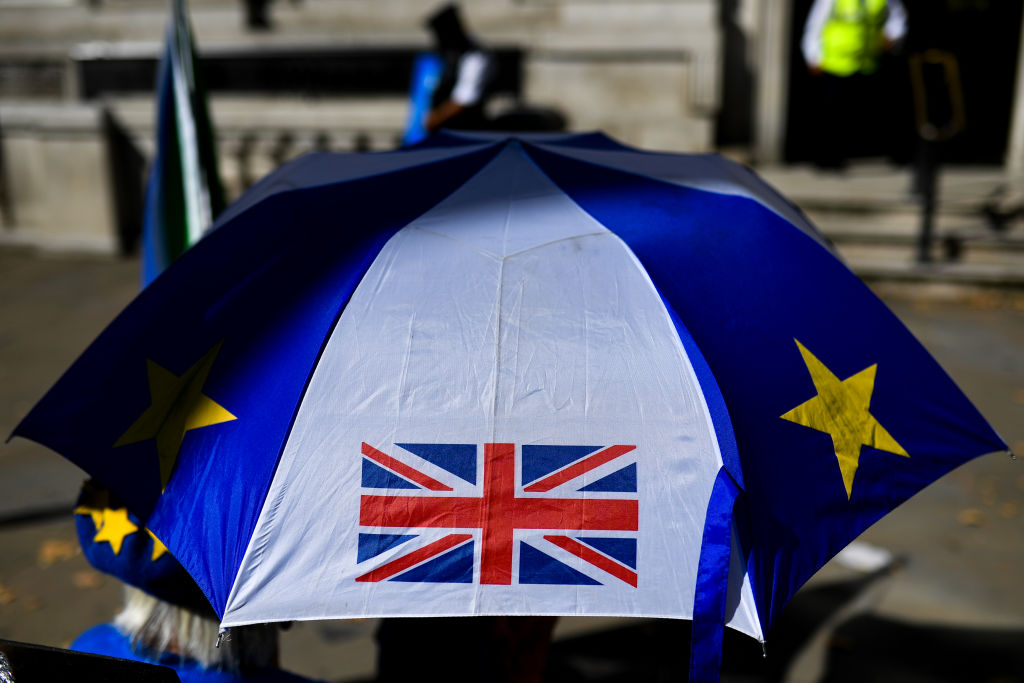
The then–prime minister Theresa May tried once more to get the withdrawal agreement negotiated late last year with the EU through parliament. Once again, she failed against the combined forces of Leavers in her own party who thought her deal too soft, Remainers who would never be happy with any deal, and a Labour leadership trying to hold the party together by insisting that a better deal could be found if only they were able to take charge of the negotiations.
The realities of government have a habit of undermining the rhetorical excesses of a campaign, and Johnson had to confront the same difficulties that impressed his predecessor.
May had attempted to find common ground with Labour. This might have worked if attempted early in the process but was doomed to failure at this late stage. The lacklustre performance of both front benches was then punished, as the UK was now obliged to participate in the elections to the European parliament in May. Leading the pack was the Brexit Party, the creation of Nigel Farage to replace his former vehicle, the discredited UK Independence Party. But on the other side of the divide, the Liberal Democrats, previously in the doldrums, surged (along with the Greens) by offering a strong Remain message. Labour and the Conservatives came third and fourth.
May resigned at once, and the next seven weeks of the UK extension were taken up with a leadership fight. Tory party members, many of whom had voted for the Brexit Party in preference to their own in the EU elections, chose the country’s next prime minister. With this electorate, the favourite from the start was former foreign secretary and leading Leave campaigner Boris Johnson. While some of the other candidates warned against crashing out of the EU, Johnson countered with a cheery optimism that all would be well, dismissing the “doomsters” and “gloomsters”.
Most importantly, Johnson insisted that he would get the UK out of the EU on 31 October “do or die”, a turn of phrase that was taken to mean “whatever it takes”, although it actually admitted of the possibility of complete failure.
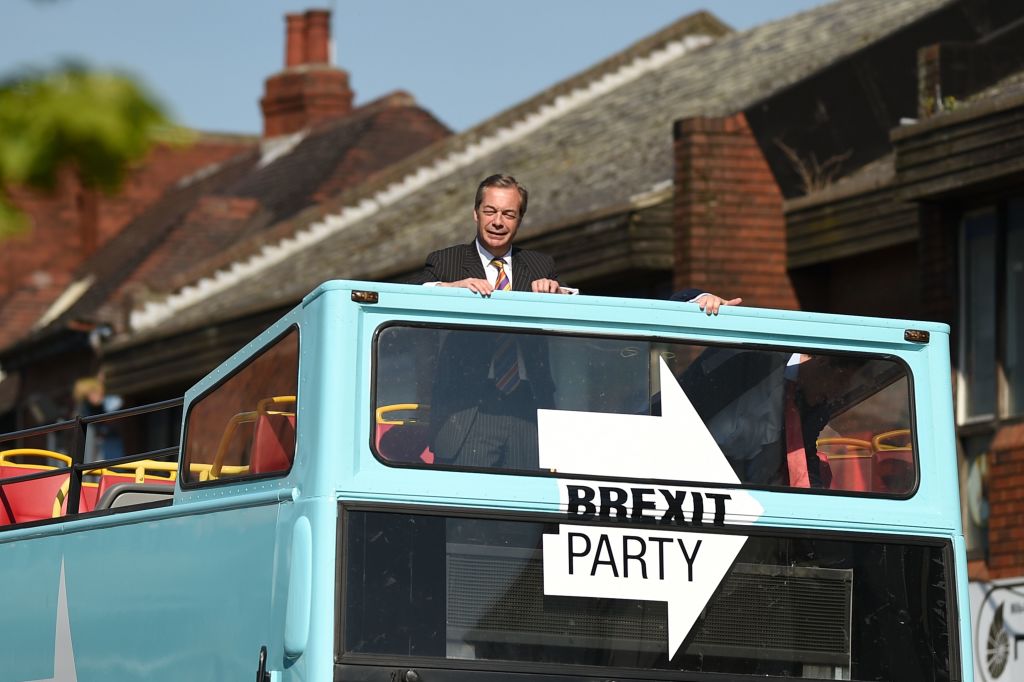
Once confirmed in power, Johnson moved swiftly and decisively to put together a government generally loyal to him and with backgrounds in the Leave campaign. He also notably brought in as chief of staff Dominic Cummings, a clever, intriguing, driven, eccentric fellow who made his reputation as the strategist behind the Leave campaign in the referendum (and had even been played by Benedict Cumberbatch in a TV dramatisation). Cummings was also known for his disdain for most politicians and a personal philosophy more libertarian than conservative. The government machine was told to prepare fully for a no-deal departure. While Johnson spoke in emollient terms about how much he would like to do a deal with “friends and partners” in the EU, nothing he did or said made that seem at all likely. The first conversations with EU officials and governments suggested that he wanted to tear up May’s withdrawal agreement completely and start afresh.
But the realities of government have a habit of undermining the rhetorical excesses of a campaign, and Johnson had to confront the same difficulties that impressed his predecessor when contemplating leaving without a deal.
First, the leak of a document on government preparations for no deal (code-named Operation Yellowhammer) revealed the extent to which a disorderly departure could be accompanied by shortages in foods and medicines, transport systems clogged up, new regulations being implemented without the bureaucracy being ready, chaos in Northern Ireland, and more. Better preparations might mitigate some of the most damaging effects, but in the end most of the coping would have to be done by small business and organisations that lacked capacity and plans. Manufacturing and agriculture would be put under great strain. Despite the government’s attempts at reassurance, public opinion has notably failed to warm to the idea as the only “true” Brexit. If anything, there has been a slight shift away from Leave to Remain among the public.
Second, Johnson and his supporters claimed during the leadership campaign that there were a variety of ruses available to ease the pain of losing privileged access to the country’s biggest market, largely involving obscure provisions of the General Agreement on Trade and Tariffs under the World Trade Organisation. None of these ruses survived scrutiny. They did not work legally and, even if they did, would still require active and unlikely cooperation by the EU.
Third, a new and grand trade deal with the US was presented as potential compensation. President Donald Trump, while suggesting that Johnson is a British version of himself, has spoken enthusiastically about the potential of such a deal. But Johnson has become cautious about the prospects. The US, especially under Trump, is not known for making big concessions on access to the US market, these deals take years to negotiate and ratify, and the key votes will be in the House of Representatives, where House Speaker Nancy Pelosi will set out her own conditions. Here as with the other aspects of the post-Brexit world, the government must manage expectations lest anger and disillusion later generate a backlash.
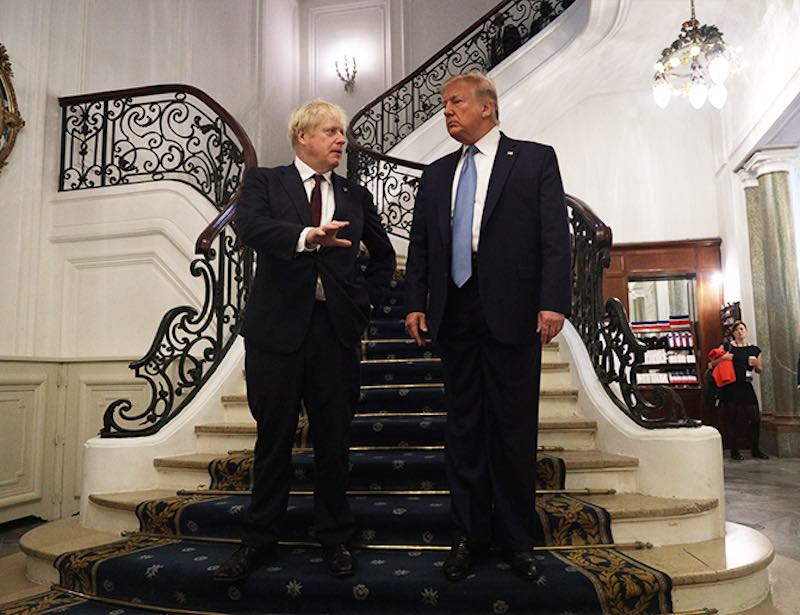
On 19 August in a letter to EU Council President Donald Tusk, Johnson did engage more formally, setting out what he hoped might be a way forward. What was striking was how narrowly the problem was framed. Despite the desire of the hard-liners to scrap the whole withdrawal agreement, Johnson focussed solely on the so-called Irish backstop. This is the provision in the agreement that guarantees an open border with Ireland. If this cannot be done by technical means, or as a consequence of the new relationship to be agreed with the EU during the transition period, then effectively the UK must stay in a “single customs territory”. It took time before it dawned on Leavers late in 2018 that this prejudged issues that should properly be dealt with during the transition, but it reflected the intense anxiety, on both sides of the Irish border, about the economic and political consequences of a hard border.
A disorderly Brexit will not be a clean break, as many Leavers may hope, but just the precursor to a whole series of new types of deals to be agreed in the most challenging of circumstances.
If there were an obvious way of squaring this circle, it would have been found by now. Johnson committed the government to an open border while being vague on “alternative arrangements”. The initial response of the EU was dismissive, but meetings with Germany’s Angela Merkel and France’s Emmanuel Macron suggested that there might be some wiggle room. This may be no more than a desire for the EU not to be used as a scapegoat for no deal.
The ideas circulating suggest an approach based on dividing the problem into different sectors, with close alignment with the EU remaining in the more difficult areas, and divergence elsewhere. Nothing will be agreed by the EU unless Dublin accepts any new proposals, and that will depend on Irish Prime Minister Leo Varadkar concluding that a watered-down backstop with a commitment to an open border may be better than the probable reality of a hard border and damage to the Irish economy in the event of no deal.
It is therefore important to keep in mind that all the effort that Johnson is putting into showing how he is prepared to go to the brink and over will achieve, at most, a minor change to an agreement he heartily rejected as a backbencher.
The biggest problem Johnson faces is that he has virtually lost control of the House of Commons. Defections and a by-election have reduced his working majority to one, even with the support of the Democratic Ulster Unionists, and a substantial number of Conservative MPs, including recent Cabinet ministers, have made it clear that they will do all they can to block no deal. Their difficulty is that the clock is ticking and they cannot force another extension unless Johnson asks and the EU agrees.
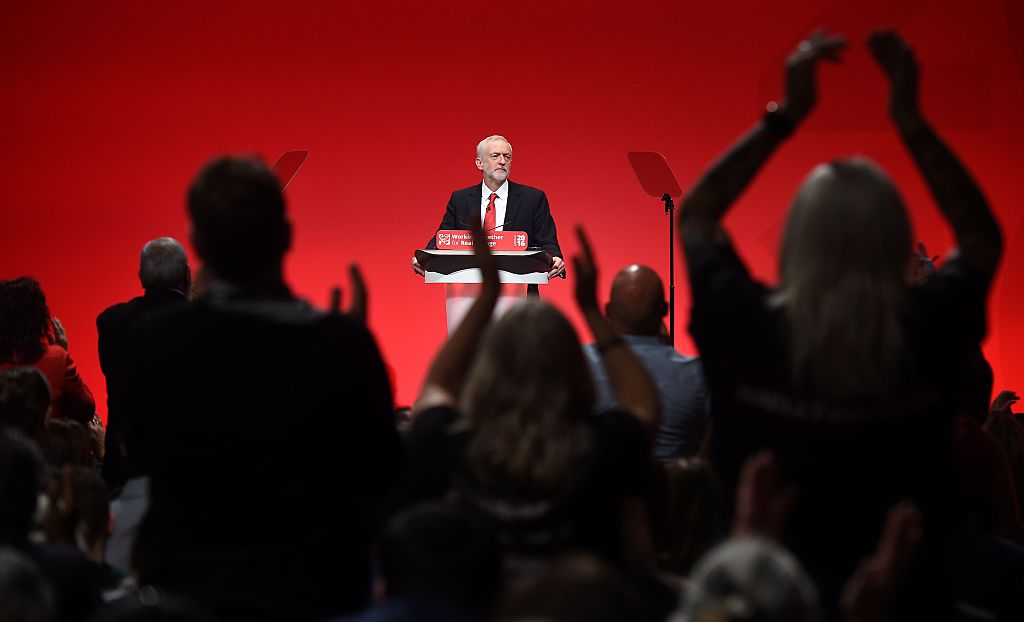
Two routes have been discussed to force the government’s hand. The most straightforward, because it followed on from tactics employed earlier in the year, would be to seize control of the parliamentary agenda and push through legislation obliging the government to act against its own wishes. There are a number of procedural obstacles and, as before, there remains the problem of a stunning lack of consensus on the alternative path that the country should follow. Opponents are still divided between a version of May’s deal, a second referendum, a general election and a simple revocation of Article 50 that set the withdrawal process in motion.
The other, more dramatic, route would be a vote of no confidence in the government. Opposition Leader Jeremy Corbyn has promised that if one was passed, he would take on the role of caretaker prime minister, seek an extension from the EU, and call a general election. Outside his own party, and even within it, many MPs would not wish Corbyn ever to get close to Downing Street, even on a temporary basis, let alone present himself as prime minister when an election was called. The Liberal Democrats have suggested figures more widely acceptable, such as former Tory Chancellor Kenneth Clarke, and that might work.
One way or the other, this route of a vote of no confidence in the government leads to a general election. It may be that Johnson wants an election and might call one without prompting, but he is running out of time to have one before 31 October. To have an election taking place during the course of what could be a chaotic exit, with government unable to pass emergency legislation or get a grip on the situation, would be an extraordinary gamble. Nor is there any certainty about how an election would turn out.
Current polling suggests Johnson might win largely because Labour is in a wretched state, with low morale and deep divisions. But against the seats Johnson might gain from Labour, he would have to reckon on a persistent Brexit Party vote weighing him down, with the Liberal Democrats (who are likely to have a loose pact with the Greens) scooping up seats in strong Remain areas and even beyond, while the Scottish Nationalists recoup the losses they suffered in 2017, especially now that Ruth Davidson, the popular Tory leader in Scotland, has resigned.
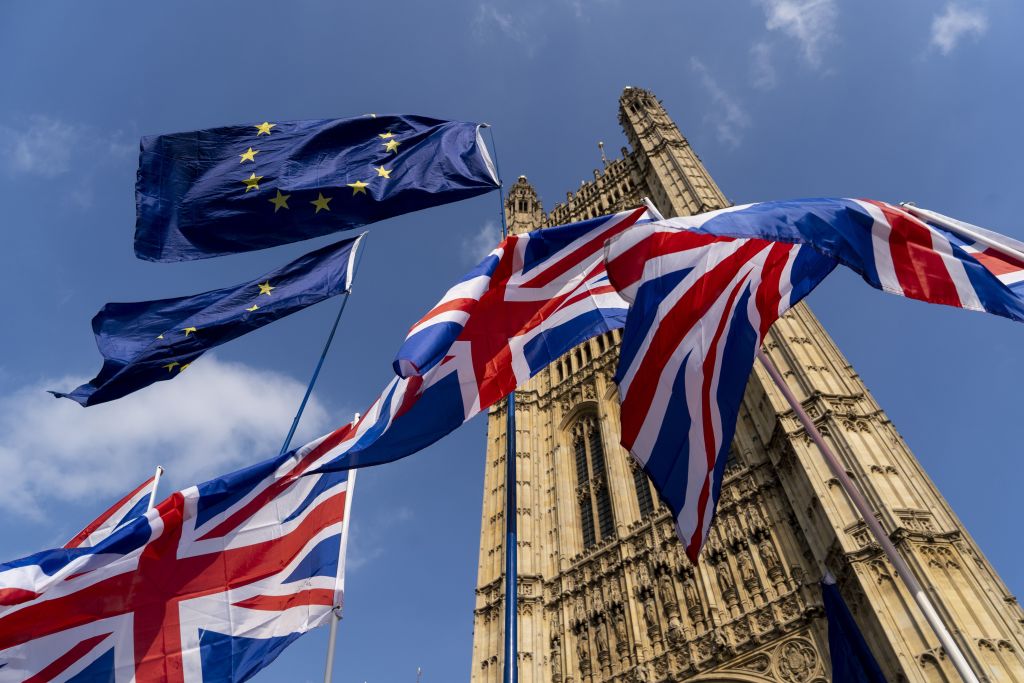
This is the backdrop to the prorogation of parliament. Its main aim is to make life as difficult as possible for Johnson’s opponents by denying them time. So far, it has had the effect of galvanising opponents who are claiming that it is a constitutional outrage and a virtual coup. But it does not deny them all parliamentary time, and if they organise themselves, the options they had before are still available.
When the idea of proroguing was first mooted, the idea was to keep parliament out of the way until after 31 October. That would have completely ruled out any sort of last-minute deal and made leaving and its aftermath even more fraught. By backing away from the most extreme action, so that parliament will reconvene just before the next European Council meeting on 16-17 October, Johnson has left open the chance of putting a revised deal to parliament.
Why would he have any more chance than Theresa May of getting such a deal through the Commons? Already the more hard-line Leavers in his party have warned that they will oppose a slightly amended withdrawal agreement as vigorously as before. The difference is that this time it really will be this deal or no deal, and the Labour Party would risk being seen to be the instrument of chaos if it voted against it after saying its main priority was to avoid no deal. Labour might try to amend the motion by supporting the deal but only with a confirmatory referendum, but it's as likely enough of Labour’s MPs would just want the issue sorted and a chance to talk about something else.
Of course, forgotten in all of this is that all a withdrawal agreement will do is move the UK into a transitional phase, when most of the truly big substantive issues on trade, regulatory alignment, and security would have to be addressed. A disorderly Brexit will not be a clean break, as many Leavers may hope, but just the precursor to a whole series of new types of deals to be agreed in the most challenging of circumstances. Brexit is not an issue that will ever go away.
It is widely assumed that Johnson wants no deal. This is unlikely to be the case, but he has also boxed himself in. Without a bit more than a token concession from the EU, he is going to struggle to see off the challenge from hardliners.
At the same time, those opposed to no deal know they must act quickly, and they may struggle to find a way forward. But politics has become very fluid. Johnson has never been known for his consistency, and he has a theatrical flair which allows him to appear to be pointing in one direction while he moves in the other.
